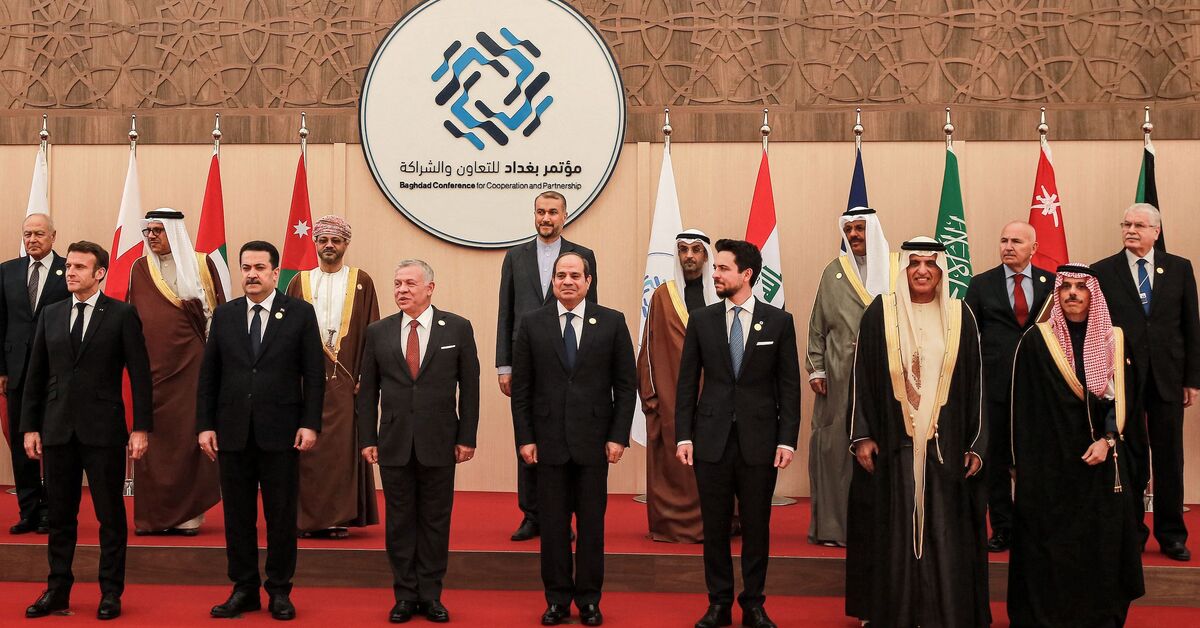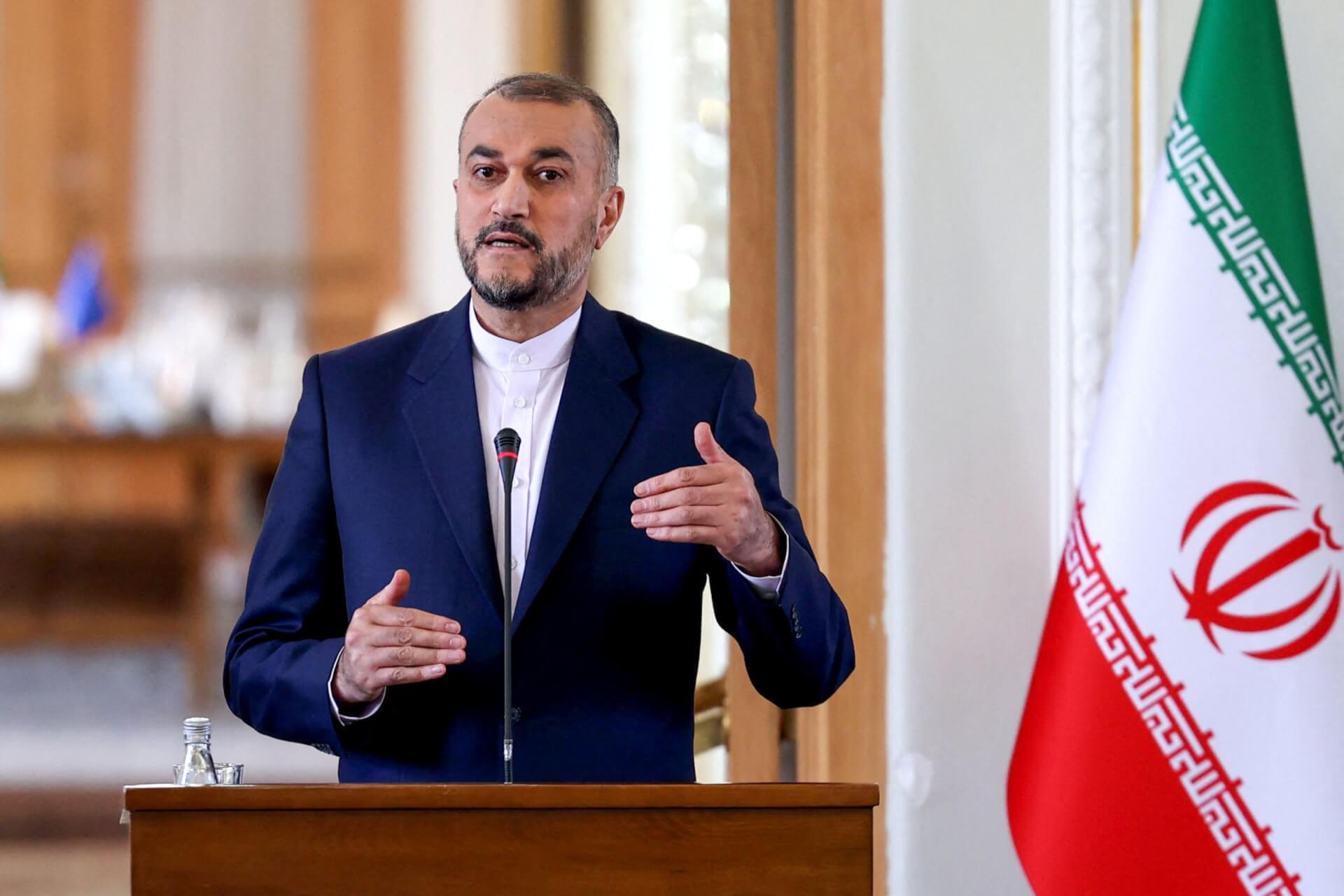Iranian Foreign Minister Hossein Amirabdollahian revealed on Wednesday that his Saudi counterpart Prince Faisal bin Farhan told him that Riyadh is willing to negotiate with Iran, despite Tehran saying two days ago that it suspended talks due to Saudi Arabia’s support for the ongoing anti-regime protests.
“The Saudi minister assured me of his country’s readiness to continue dialogue with Iran,” Amirabdollahian said in a tweet in Arabic, adding that he had spoken with his counterparts from Oman, Qatar, Iraq, Kuwait, and Saudi Arabia on the sidelines of the ‘Baghdad II’ summit in Jordan on Tuesday.
The summit, co-hosted by Iraq and Jordan, was held in Amman and attended by Jordanian President King Abdullah II, Iraqi Prime Minister Mohammed Shia Al Sudani, French President Emmanuel Macron, and delegations from Turkey, Egypt, Kuwait, Saudi Arabia, the UAE, Qatar, Oman, Bahrain, and Iran. The theme of the summit was bringing peace and stability to Iraq and the region.
Just this Monday, it was reported that Iran had suspended normalisation talks with Riyadh for supporting anti-regime protests and inciting violence across Iran.
Iran was supposedly refusing to meet Saudi officials unless they stopped supporting the protests. The Associated Press quoted Iran’s permanent mission to the United Nations as saying that the talks had “ceased” for a “variety of reasons” and “it might be worth asking Saudi Arabia about them.”
Amirabdollahian, too, noted that Tehran would like talks to continue and blamed Riyadh for the disruption. “It is the Saudi side that should decide to behave constructively,” he said.

Iran has accused internal and foreign enemies, including Saudi Arabia, of supporting the anti-regime protests that erupted after the murder of Mahsa Amini by the morality police in September. Last month, Iranian Intelligence Minister Esmail Khatib warned Saudi Arabia against meddling in Iran’s internal affairs, saying it can unleash chaos in the Gulf country. Khatib stressed that Tehran would not hesitate to reciprocate against Riyadh by destroying its palaces.
Nationwide demonstrations have continued to spread across Iran for over three months. According to an estimate, at least 506 protesters, including 69 children and 32 women, have been killed in clashes with security forces. Iran has executed two detained protesters, and 39 others are at imminent risk of facing the death penalty.
Riyadh, however, has rejected Tehran’s accusations, claiming that Iran is planning to attack Saudi Arabia. Last month, the Wall Street Journal reported that Saudi Arabia shared intelligence with the US warning of an impending Iranian attack, prompting Washington and its allies to raise alert levels in the region.
Talks between the Sunni and Shia powerhouses began in April last year in Baghdad as they expressed interest in pursuing negotiations to resolve their longstanding differences. Although talks continued for a year, they broke down in March after Iran suspended talks without citing any particular reason.
Negotiations once again resumed in April for a fifth round in Baghdad, with the two rivals agreeing to hold a sixth round of talks.
Iran and Saudi Arabia have had major issues with one another for a long time and tensions spiralled out of control when the Saudi embassy in Tehran was attacked by Iranian mobs in 2016 over Saudi Arabia’s execution of a prominent Shia cleric. Following the attacks, the Kingdom officially broke diplomatic ties with the Islamic Republic.
Since then, the two sides have clashed numerous times, especially in war-torn Yemen. Saudi Arabia has led an international coalition in the country that has been launching airstrikes against the Iran-backed Houthi rebels. The Houthis have also targeted Saudi energy infrastructure, including several Saudi Aramco facilities.

